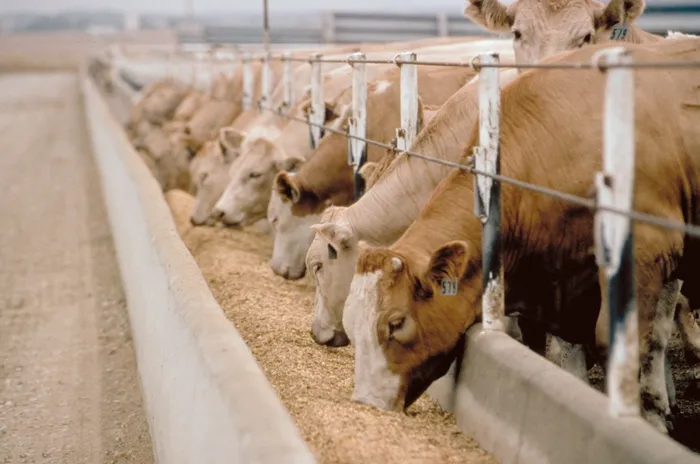Farmers warned about illegal FMD vaccine imports from Kenya

The Agriculture department said they were aware of the risks associated with the illegal importation and use of FMD vaccines.
Image: File
LIVESTOCK farmers found to be risking the biosecurity of South Africa by importing and using a Kenyan Foot and Mouth Disease (FMD) vaccine that is not licensed for use locally will face ‘harsh consequences', says the Department of Agriculture.
The warning came after Milk South Africa raised concerns about the conduct of some livestock farmers, saying as much as the organisation sympathised with the plight of farmers, it “cannot condone the practice”.
“Importing any medication that is not licensed in South Africa, is a criminal offence. Milk SA condemns the practice in the strongest terms. To import an unregistered scheduled medication requires a Section 21 application to be submitted to the South African Health Products Regulatory Authority (SAHPRA). There are specific guidelines for the importation and distribution of scheduled substances and the quality requirements for these products. Such imports are only allowed in selected instances,” said Milk SA’s Animal Health and Welfare Programme manager Dr Mark Chimes.
He said the current water-based vaccine imported from the Botswana Veterinary Institute is not registered in South Africa, it was imported under a special permit.
“It is a short acting vaccine requiring vaccination every 3 months. An oil-based vaccine from Turkey is currently undergoing tests against the South African FMD virus strains and the manufacturers have submitted their application for a permit to import the vaccine. This vaccine is longer acting and only requires animals to be vaccinated every 6 to 12 months (depending on what approval they are granted).”
He said the vaccine, manufactured by the Kenya Veterinary Vaccines Production Institute (KEVEVAPI), is a short-acting vaccine and requires a booster vaccination every 4 to 6 months.
“It is marketed under the name FOTIVAX™. It is not registered in South Africa. FOTIVAX™, does not protect against all the strains of FMD that occur in South Africa. It is also not a DIVA vaccine. DIVA is an acronym for “Distinguishing Infected from Vaccinated Animals”. Should animals test positive for FMD antibodies, a DIVA vaccine makes it possible to distinguish whether it was caused through infection or vaccination. The A and O strains of FMD do not occur in South Africa," Milk SA said.
Agriculture department spokesperson Joylene van Wyk said they were aware of the risks associated with the illegal importation and use of FMD vaccines.
“Importing any veterinary vaccine without proper authorisation is a serious biosecurity breach and criminal offence. Vaccines must be declared and imported under strict permit conditions, as they require cold-chain management and are classified as high-risk cargo. No country will supply FMD vaccines without written authority from the importing country. Introducing a vaccine strain that does not match the local outbreak could lead to catastrophic consequences, including the introduction of new FMD strains to which our national herd has no immunity. This could devastate cattle and other cloven-hoofed animals. That is why allowing other manufacturers access to our field strain must be done under a strict protocol to ensure biosecurity and prevent the risk of introducing new strains," van Wyk said.
The department urged anyone with information about the illegal import of vaccines to contact law enforcement agencies.
The outbreak was gradually being contained, and the rollout of a South African-produced vaccine is expected in March/April 2026, the department added.
The South African Health Products Regulatory Authority (SAHPRA) did not respond to requests for comment by deadline.
Cape Times